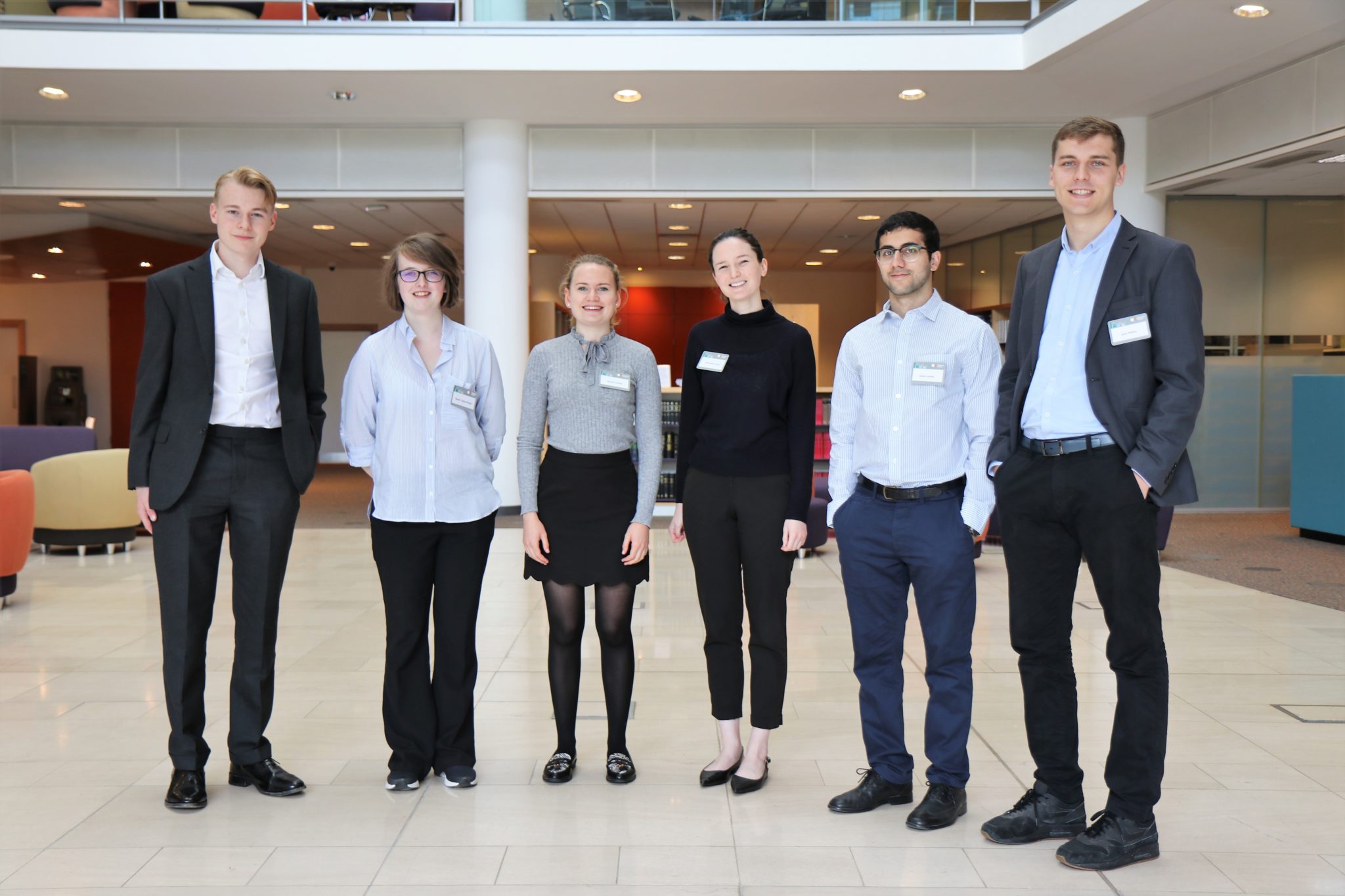Osborne Clarke has recruited a combination of law and STEM students from the University of Bristol to its new vacation scheme.
Osborne Clarke and the University of Bristol have teamed up to offer an innovative new yearly Legal and Emerging Tech Vacation Scheme in a bid to help form the tech partnerships of the future. Working closely together, Osborne Clarke hopes to tap into the University's strong reputation in the fields of STEM and law to offer students the chance to get real-world experience at a high-profile technology law firm.
As part of the scheme students started by undertaking a two-week placement with a difference at the firm's Temple Quay office in Bristol. The six students – half of which are studying law while the other half are studying computer science and engineering mathematics – were paired up and challenged to work together using their different skill sets on a project to resolve a real business problem using technology.
As part of their projects the students considered some of the latest legal technology which is set to streamline and enhance legal services. Each pair was assigned one of the following challenges:
Collaboration Tools: Analysing and thinking about the best project management tools lawyers need to be able to assign and manage tasks. Students are challenged to look at how introducing a new collaboration tool would work alongside Osborne Clarke's existing systems enabling colleagues to work together more effectively.
Smart Contracts: Looking at ways Osborne Clarke can be more innovative and efficient in helping clients with contracts. Students are tasked with identifying cases where blockchain-enabled Smart Contracts would be useful to automate provisions in written legal contracts.
Litigation Dispute Modelling: How can we provide better advice to clients on the likely outcome of their dispute case? Students need to research tools that provide prediction models for clients on the key factors of cost, time, outcome and recovery.
Partners Nick Simpson, Mark Taylor and Rob Horne oversaw the students work as project sponsors, with the students receiving additional mentoring from members of the IT and legal teams. They also had the opportunity to attend workshops and meet with different Osborne Clarke specialists to see how new technologies are impacting on the law and how the firm is utilising new technologies in the services it offers to clients. For example, the students spent time learning about the work the Osborne Clarke Solutions team do developing bespoke cloud-based online solutions for clients.
At the end of the two weeks, each pair presented their ideas to a panel made up of their project sponsors and Osborne Clarke experts who offered feedback. The firm is now deciding which students will be offered part time positions to the end of the academic year to progress their projects. All the students on the programme have been offered ongoing mentoring.
Alongside the scheme, programme experts from Osborne Clarke will also be giving a series of guest lectures at the University.
Commenting on the programme, Nathan Hayes IT Director at Osborne Clarke who is leading this initiative said:
"We wanted to work with the University of Bristol because of its fantastic reputation in law and in the STEM fields of computer science and engineering mathematics. As digitisation and technological innovation becomes increasingly more important to our clients and key sectors, we are conscious that we need to stimulate our thinking around the use of emerging technologies. With this in mind, we wanted to work with the University to access their brightest tech and legal young minds and in return provide those individuals with access to the latest legal technologies being used to address real world client challenges. Combining the different disciplines has encouraged the students to think in new ways and we look forward to following them as they progress with their studies."
Laura Stafford, Student Industrial Liaison Manager, from the Industrial Liaison Office, said: “Through this partnership, students have been awarded a fantastic opportunity to enhance their employability skills by working on a real-world problem, in a professional environment supported by mentors and subject matter experts, with students from a completely different discipline."
Jo Cooksley, Employability Adviser at the University of Bristol Law School, commented: "We are passionate about nurturing collaborations between students, industry and researchers - knowing how much students benefit from the experience. This partnership took things a step further for those involved, as they adapted to collaborative working, under pressure with a looming deadline! We are extremely proud of how well they performed and look forward to finding out who will take the next step.”
Pictured L-R: Sebastian Curtis, Sarah Taylor-Knight, Niamh Greene, Fionnuala Lynch, Amin Lessan and Jack Healey.












